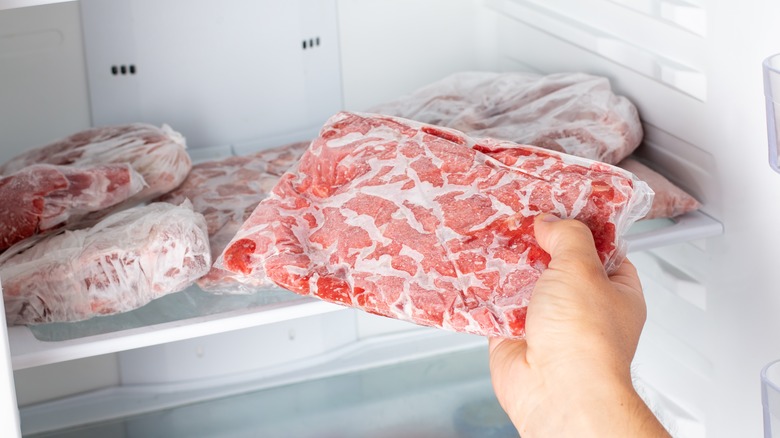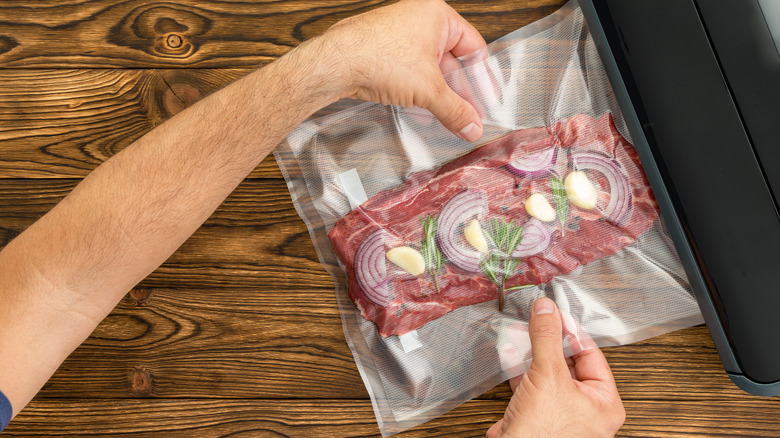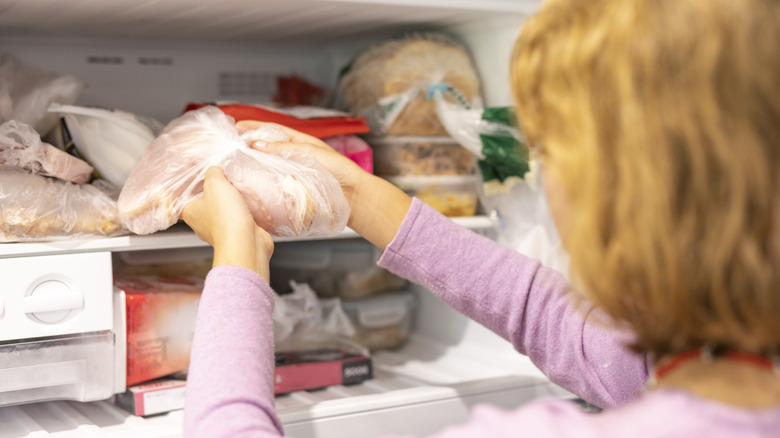Meal Prep Like A Pro By Freezing Your Proteins In Individual Servings
We all know it can be hard to make time to cook from scratch during a busy work week. That's why many people choose a day when they're less busy and spend some time in the kitchen prepping a series of meals that will last from Monday to Friday. Whether you're prepping flavorful meals for one, or big batches to satisfy an entire family, you want to make sure you preserve them to optimal freshness. And when you've prepared proteins like meat or fish, the process of storing them comes with its own set of rules.
If you are prepping multiple meals for one, it's highly recommended to freeze proteins in individual servings. This ensures the right quantity for the week and helps preserve the quality, as well. This little trick is one of several meal prep hacks you should know as you expand your repertoire. After all, the bigger the variety of meals prepped, the more enjoyable dinner time is throughout the busy week.
Preparing your meats for the freezer
The most effective method for freezing both raw and cooked proteins is to use food-safe vacuum-sealed bags. If you don't have a vacuum sealer, you can use a combination of plastic wrap and aluminum foil, or plastic wrap and parchment paper, then place the wrapped protein inside airtight resealable freezer bags. The airtight seal prevents freezer burn, and dividing the meat into individual meal-sized portions makes it more convenient when you pull it from the freezer. Smaller portions are quicker and easier to thaw.
How long you can freeze a protein and still have it taste good when thawed, depends partially on if it's cooked or raw. Raw meats, when properly stored, range from four months to a year. It's generally considered best to use frozen cooked proteins within three months. Since many people do meal prep for a week or two in advance, there shouldn't be a problem storing cooked proteins that will taste great later, plus, they are faster when preparing the meal.
Tips for storing and defrosting meats
When you're storing a variety of individual proteins in the freezer, you'll want to label them with the name and date. You also want to make sure you store cooked meat on the same day it was prepared. But be sure to first let it cool down to refrigerator temperature before packing it in the vacuum-sealed bag or freezer bag. Additionally, be sure not to stack the freezer bags, as this will slow down the freezing process. (You can do so after they are fully frozen.)
The best way to defrost meat and fish is to do it in the refrigerator. Time will vary based on weight and size. Placing the airtight bag in a bowl with cold water (also called a cold water bath) will help thaw it out faster, however, that method requires more attention. For most meal prep dinners, you'll be thawing previously cooked proteins. Once your pre-cooked meat, fish, or other protein is completely thawed, reheat it to the same internal temperature required as if you were cooking it from raw.


